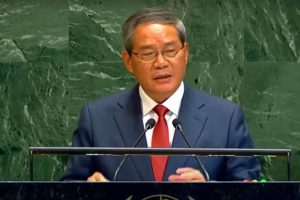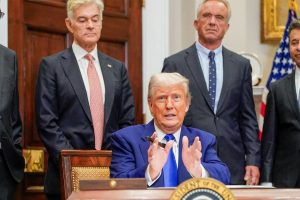Indian refiners are showing early indications of reducing their dependence on Russian crude following sustained US diplomatic pressure, US Congressman Brian Fitzpatrick has claimed after concluding a two-week intelligence-focused visit to South Asia.
In a statement released on Tuesday, Fitzpatrick said his delegation held strategic discussions in India with senior leaders, including External Affairs Minister S. Jaishankar and National Security Advisors. According to him, these dialogues, along with continued engagement, had led to “early signals” that India may scale back purchases of Russian oil—a move Washington views as crucial to weakening Moscow’s war financing in Ukraine.
“Following these engagements and sustained US pressure, Indian refiners are signalling plans to reduce imports of Russian oil—a consequential shift that directly undermines Moscow’s ability to finance its war in Ukraine,” the release quoted him as saying.
The claim comes amid heightened trade tensions after the US imposed a 50 percent tariff on Indian imports, including an additional 25 percent duty tied to New Delhi’s Russian crude purchases.
Fitzpatrick, Chairman of the CIA Subcommittee on the House Permanent Select Committee on Intelligence, was accompanied by Congresswoman Chrissy Houlahan, also a member of the House Intelligence Committee. During the India leg of the trip, the delegation also visited the US Embassy in New Delhi, met diplomatic and security staff, and paid a visit to the BAPS Swaminarayan Sanstha.
Beyond India, the team travelled to Pakistan and Nepal. In Islamabad, they held meetings with US Embassy officials and senior American personnel, as well as representatives from the UK, Australia, and Ukraine. Discussions centred on counterterrorism cooperation, intelligence transparency, and regional security.
In Kathmandu, the delegation met US Embassy officials to strengthen intelligence coordination and bilateral ties. Fitzpatrick stressed that these engagements bolstered efforts to counter “malign foreign influence,” defend democratic governance, and uphold a rules-based regional order in South Asia.





